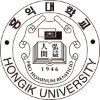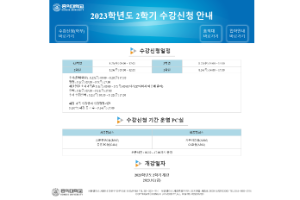Hongik University

Hongik University is located in Seoul, South Korea. It is locally known as 홍익대학교. The university was established in 1946. It is accredited by Ministry of Education, Science and Technology, Korea.
University Profile
Get a quick snapshot of the university's key details.
| University Name | Hongik University |
|---|---|
| Name in Local Language | 홍익대학교 |
| Year Established | 1946 |
| Motto | Pro Hominum Beneficio |
Location
The university is located in Seoul. Find the address of the university below.
| Address | 72-1 Sangsu-dong, Mapo-gu, Seoul, South Korea |
|---|
Contact
Connect with the university easily! Find their contact details.
| Phone | +82 (2) 320 1042 |
|---|---|
| Fax | +82 (2) 320 1047 |
| Website |

|
| More Links |
Admission Info
Find information below on admission to Hongik University.
| Student Body | Men and Women |
|---|
Scholarship and Financial Aids
There is no information found on scholarships or financial aids offered by Hongik University. You may like to visit their website for more details.
Programs and Courses
Get a quick overview of programs and courses offered at this university.
| Bachelor's Degrees | Master's Degrees | Doctorate Degrees | Diplomas | |
|---|---|---|---|---|
| Arts & Humanities | n/a | n/a | ||
| Business & Social Sciences | n/a | n/a | ||
| Engineering | n/a | n/a | ||
| Language & Cultural Studies | n/a | n/a | ||
| Medicine & Health | n/a | n/a | n/a | |
| Science & Technology | n/a | n/a |
Click on the following button to explore a detailed list of programs and courses of this institute.
View Course ListRelated Articles
Stay informed with the following articles related to the university or higher education in South Korea.
